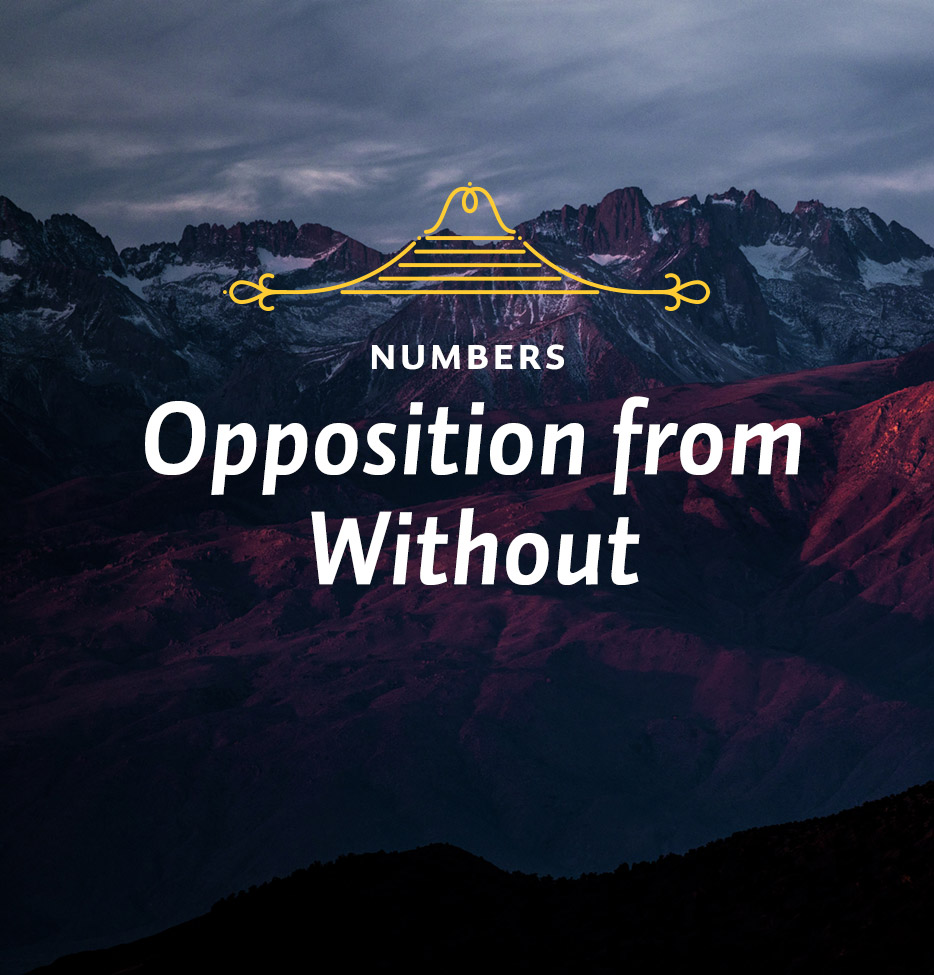What is happening in this story of Balaam and the donkey, which we find in Numbers 22:21-35? First, Balaam is pushing the donkey onward until he is brought up short by God’s angel. In exactly the same way Balak, the king of Moab, keeps pushing Balaam onward to curse Israel until he is brought up short by God. Second, just as God opened the donkey’s mouth to speak to Balaam, so God is going to open the prophet’s mouth to speak God’s true words of blessing on Israel. Even though the donkey spoke, she wasn’t a true prophet; so also, Balaam’s speaking doesn’t make Balaam a true prophet, either. But he does speak the words of God because God comes upon him. Third, the donkey’s dilemma mirrors that of Balaam’s. The donkey is caught between the angel of God with his drawn sword, and Balaam’s stick. And Balaam is caught between the pressure that he is getting from the king of Moab to curse the people, and God who stands against him.
I think it’s one of the most amusing stories in the Bible. When the donkey speaks to him, it’s humorous in itself that Balaam doesn’t consider this an unusual phenomenon. He just talks back to the donkey as if it was the most natural thing in the world. And he tells the donkey, “You have made a fool of me! If I had a sword in my hand, I’d kill you right now!” But it’s not the donkey who is the fool, it’s Balaam. There is a sword there, but it is the sword of the angel. And it’s not directed against the donkey, it’s directed against Balaam. The angel said, “I have come to oppose you, and the donkey saw me. If she hadn’t turned away, I would have killed you by now and I would have spared her” (see vv. 32-33). The speaking donkey is a miracle, of course, but that’s not the point of the story. The point of the story is that Balaam is opposing God.
At this point the story begins to get serious, at least in terms of the oracles that Balaam is given to deliver. It’s not entirely serious because you still have the king of Moab there, trying to get him to curse the people. And every time Balaam stands up and blesses them instead, this poor king is fit to be tied. He wrings his hands, he jumps up and down, and he wants Balaam to leave, but these oracles keep coming out, and he can’t do anything about it.
Balaam’s seven oracles began by dealing with the past, particularly focusing on God’s blessing of the patriarchs. They then go on from there to talk about the future, and, if we understand them rightly, the coming of the Messiah. We get this picture of the frantic king of Moab standing there, trying to get these blessings to stop. He wants curses, not blessings, but can’t do anything about it. He would rather have had no prophecies at all.
The first oracle is found in Numbers 23:1-12. The theme of it is the unique position of Israel, and God’s irrevocable blessing upon them. They are not like any other people. They don’t fit in with the other nations of the earth. Throughout the course of history, the Jewish people have been a people to themselves, surviving many hundreds of years as other nations perished along the way.
Balaam also refers to their numbers, saying, “Who can count the dust of Jacob…?” (v. 10). This in itself is a reference back to what God said to Abraham, that his offspring would become as numerous as the stars in heaven and the sand of the seashore. In a sense, Balaam is now acknowledging the truth that God has fulfilled the promises He made to Abraham. He has blessed the people; they are very numerous. This itself should be an encouragement because one of the additional things God has said is that He was going to lead them into the land of their own, and now they’re on the very border of that territory.
At the end of this oracle, Balak is both angry and alarmed and says, “What have you done to me? I brought you here to curse my enemies, but you have done nothing but bless them!” (23:11). The reader should chuckle at the frustration of this ignorant pagan king.






